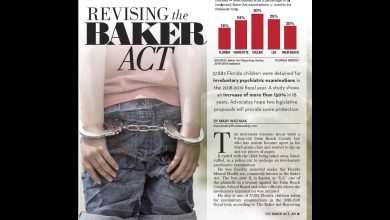
How to Protect Yourself from Debt Collector Scam Calls Once and for All
If you have been receiving debt collector scam calls, it can seem like there’s no end in sight to this harassing tactic. Luckily, there are things you can do to put an end to these fake phone calls once and for all—so you can stop debt collector scam calls before they start! Here’s how.
What are Debt Collection Scam Calls
Collection scam calls are a type of phone call where a scammer will pretend to be legitimate debt collectors—threatening someone with debt they do not owe. They claims that you owe a debt. The debt may be completely fake, canceled, discharged, forgiven or beyond the period for collection. Some scammers may collect on a debt that you do owe through your credit report and then call pretending as the collector.
How to Protect Yourself from Debt Collection Scam Calls
Know Your Debt Collection Rights
In the United States, debt collection is regulated by law. One of the most important regulations is the Fair Collection Practices Act (FCPA). The FCPA sets out your rights as a debtor when it comes to collection companies and their efforts. Debtors are protected against abusive collection practices, such as unreasonably calling you at work or on any other phone number that you have made available for public use. Debtors also have the right not to be sued if they don’t have enough money to pay off their debts.
Ask for a written debt validation letter
When someone contact you about a debt, ask the caller to verify the debt by sending a written debt validation letter. By law, debt collectors must send you information about how much you owe and who the original creditor for the debt was.
Contact the original creditor
Contact the original creditor to ask if they contact your, or if they sold your debt to others.
Avoid providing personal or financial information
When someone asks for personal and financial information like Social Security number, credit card numbers or checking account details, don’t share anything.
Ask details from the collector
Ask for the caller’s name, the collection company and contact information such as a phone number or email address and its physical address. In most cases, scammers will be unwilling or unable to provide all this information.
Block or ignore repeated calls
If you’re receiving numerous debt collection scam calls, just ignore these calls or consider blocking them. You can block the scam phone numbers with the built-in feature of your phone, or set up your phone to only accept calls from known phone numbers. Another way to stop these spam calls is with an app which blocks them before they ever reach your phone.
File a complaint
It can be frustrating and downright annoying when you get a collection spam call. The good news is, there are things you can do about it. First, file a complaint with the Federal Trade Commission by calling 1-877-FTC-HELP or online at ftc.gov/complaint. Second, file a complaint with the Consumer Financial Protection Bureau by calling toll-free 1-855-411-CFPB (2372) or online at consumerfinance.gov/complaint.
Conclusion
Before you pay any debt to any collector, confirm that the debt is real and the caller is the real debt creditor.




